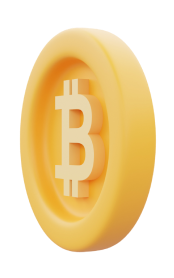


08
*_"The Rise of Altcoins: An Exploration of the Most Promising Cryptocurrencies Beyond Bitcoin"_ 🚀
The cryptocurrency market has grown exponentially since the launch of Bitcoin in 2009, with thousands of alternative cryptocurrencies, or altcoins, emerging in recent years 🌐. While Bitcoin remains the most well-known and widely-used cryptocurrency, altcoins are gaining traction and offering new and innovative solutions to various industries 🚀.
What are Altcoins? 🤔
Altcoins are alternative cryptocurrencies that have emerged since the launch of Bitcoin 🌐. They often have different features, uses, and advantages compared to Bitcoin, and can be used for various purposes, such as:
1. *Payments*: Altcoins can be used for fast and secure payments, often with lower transaction fees compared to Bitcoin 📈.
2. *Smart Contracts*: Altcoins can be used to create and execute smart contracts, enabling the automation of various processes 🤖.
3. *Decentralized Finance*: Altcoins can be used to create decentralized financial systems, enabling lending, borrowing, and trading without intermediaries 📊.
The Most Promising Altcoins 🌟
Several altcoins have shown significant promise and potential for growth, including:
1. *Ethereum*: Ethereum is the largest altcoin by market capitalization and offers a decentralized platform for creating and executing smart contracts 🤖.
2. *Ripple*: Ripple is a fast and secure payment network that enables real-time transactions with low fees 📈.
3. *Litecoin*: Litecoin is a peer-to-peer cryptocurrency that offers fast and secure transactions with low fees 📈.
4. *Cardano*: Cardano is a decentralized public blockchain and cryptocurrency project that offers a secure and scalable platform for creating and executing smart contracts 🤖.
5. *Stellar*: Stellar is an open-source, decentralized blockchain network that enables fast and secure cross-border payments 📈.
The Benefits of Altcoins 🌈
Altcoins offer several benefits compared to Bitcoin, including:
1. *Faster Transaction Times*: Altcoins often have faster transaction times compared to Bitcoin, enabling real-time transactions 📈.
2. *Lower Transaction Fees*: Altcoins often have lower transaction fees compared to Bitcoin, making them more accessible to users 📊.
3. *Increased Security*: Altcoins often have increased security features compared to Bitcoin, such as advanced encryption and consensus algorithms 🔒.
The Risks of Altcoins 🚨
Altcoins also come with several risks, including:
1. *Volatility*: Altcoins can be highly volatile, with prices fluctuating rapidly 📊.
2. *Lack of Regulation*: Altcoins are often unregulated, making them vulnerable to scams and market manipulation 🚨.
3. *Security Risks*: Altcoins can be vulnerable to security risks, such as hacking and 51% attacks 🔒.
Conclusion 🔑
Altcoins offer a promising alternative to Bitcoin, with various benefits and use cases 🌈. However, they also come with several risks and challenges that must be addressed 🚨. As the cryptocurrency market continues to evolve, it's essential to stay informed and adapt to the changing landscape 📊.